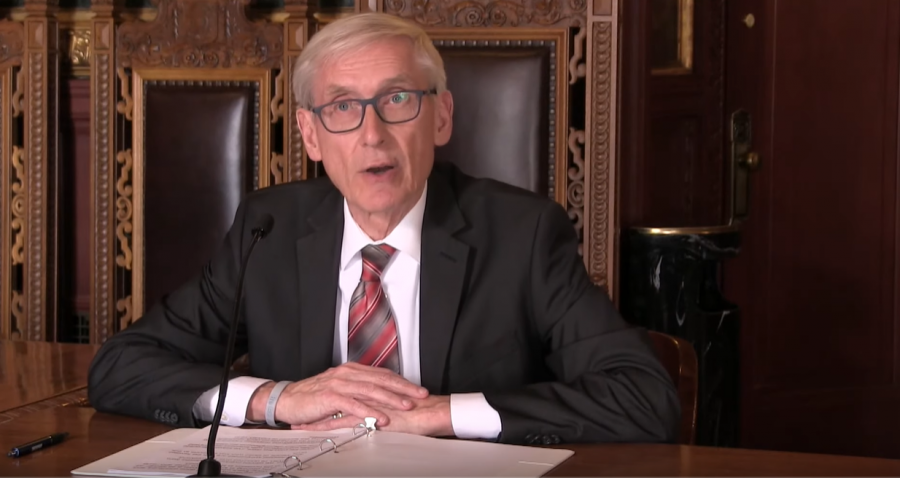Evers declares public health emergency, requires masks statewide
July 30, 2020
Today Gov. Tony Evers declared a Public Health Emergency and issued an Emergency Order requiring individuals to wear face coverings when indoors and not in a private residence, with some exceptions.
The order takes effect at 12:01 a.m. Aug. 1, and expires Sept. 28, or by a subsequent superseding order.
In a press release, Evers commended local health departments for the job they’ve done to contain the virus’ spread, but noted a “statewide approach” is needed because the virus “doesn’t care” about boundaries between municipalities.
“We’ve said all along that we’re going to let science and public health experts be our guide in responding to this pandemic, and we know that masks and face coverings will save lives,” Evers said. “While I know emotions are high when it comes to wearing face coverings in public, my job as governor is to put people first and to do what’s best for the people of our state, so that’s what I am going to do.”
In addition, he says Wisconsin is seeing new and significant community spread and increased COVID-19 cases, requiring the state declare a new public health emergency and mandate face coverings.
For example, Evers added 61 of 72 counties, representing 96% of the state’s population experiencing high COVID-19 activity, a dramatic increase from where Wisconsin was in June, when only 19 of 72 counties experienced high virus activity.
The average number of new confirmed cases of COVID-19 increased steadily throughout July, he says, with an average of 556 new cases each day between July and July 7, followed by a 37% increase between Juny 8 and 14 for an average of 764 new cases each day. From July 15 to 21, there were an average of 890 new cases each day, a 16% increase from the previous week. Then from July 22 to 26, there was an average of 938 new cases each day.
Under the order, state residents ages five and older are required to wear a face covering when they are indoors or in an enclosed space with anyone outside their household or living unit.
Face coverings are strongly recommended if you are outdoors and maintaining physical distancing is not possible. The order also enumerates exceptions to the requirement, listing activities such as when an individual is eating, drinking, or swimming. Individuals with health conditions or disabilities that would preclude the wearing of a face covering safely are also exempt from the requirement.
“Data is what drives our decisions, and that data tells us we have significant community spread in Wisconsin and need to take statewide action,” DHS Secretary-designee Andrea Palm said. “Community spread means that any interaction out in the community can mean exposure, and because people can spread COVID-19 without symptoms or even knowing they are sick, we need to take universal precautions in order for wearing face coverings to be effective.”
As the COVID-19 pandemic continues, the medical and scientific community continues to learn more about the virus, including how to best prevent its transmission. Recent scientific studies show that wearing face coverings is very effective in preventing the spread of COVID-19.
“Staying home, limiting interactions, practicing physical distancing, and washing your hands thoroughly are still the most effective ways to stop the spread,” said Dr. Ryan Westergaard, Wisconsin’s Chief Medical Officer and the State Epidemiologist for Communicable Diseases. “But we learn something new about this virus every day. A growing number of scientific studies tell us that face coverings, when used correctly and consistently by a large percentage of the community, are extremely effective for preventing the spread of COVID-19 through respiratory droplets.”














